A low scoring ‘Test Match’ played in Paris in 1900 between France and Great Britain remains the only recorded cricket match ever to be played at an Olympics!
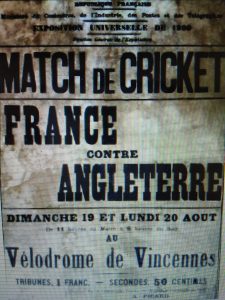
Poster for Cricket match- Paris 1900
However, are things about to change?
In August 2021, The International Cricket Council ( ICC) made its intentions clear announcing its ambition to be part of the Olympic Games going forward, proposing a bid for the sports return with a target of 2028
Chairman, Greg Barclay made their intentions very clear:
Our sport is united behind this bid and we see the Olympics as part of cricket’s long term future
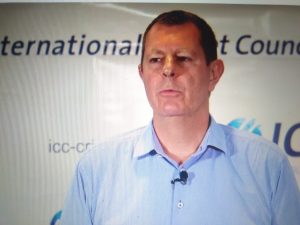
Greg Barclay- Chief Executive of The ICC
Writing in September 2021 on ‘Inside the games’, ICC Olympic Working Group Chairman, Ian Watmore said,
The Olympics could spark something special
He pointed to the incredible commercial successes of the Men’s Cricket World Cup in 2019 and the Women’s T20 World Cup, particularly in India, where there is a growing appetite to host an Olympic Games in the future, which would surely include some form of Cricket.
Imagine a country like India with 1.3 billion people glued to their TV sets watching cricket at LA28 and experiencing other sports for the first time
Watmore told BBC Radio’s Test Match special,
Putting cricket on at the Olympics will inspire men and women and boys and girls around the world to take up our great game
In April 2023 The Caribbean Association of National Olympic Committee’s (CANOC), officially backed the campaign by the ICC and supported by Cricket West Indies, for cricket’s inclusion in LA28. President, Keith Joseph said that he believed LA28 offered cricket,
a most excellent opportunity to re enter the sports programme of the Summer Olympics in style
Cricket has been a fixture at many multi sport events already in recent times and has featured regularly at the Pacific Games, (1979- the present) and the Asian Games (2010- the present) amongst others and recently returned to the Commonwealth Games in Birmingham with the Women’s T20 competition after an absence of nearly 25 years (it was a men’s one day competition at the Kuala Lumpur Games in 1998) and now appears ready to make its return to the Olympics, since its last appearance at the Paris Games of 1900.
- T20 Women’s Cricket final at Birmingham 2022 Commonwealth Games
- Australia- Gold medalists at Birmingham 2022
We have declared our intention to be involved in The Olympic Games
confirmed ICC Chief Executive Geoff Allardice, speaking at the AGM in Birmingham in 2022.
The ICC has recommended a six team T20 competition for both men and women and the participating teams would most likely be the top six in the ICC T20 rankings on an agreed date.
So, does cricket deserve a place at the world’s greatest sporting event?
Cricket is now the world’s second most popular sport behind football and has in excess of a 100 countries playing the game at international level, however significantly it has not been popular in countries that have traditionally dominated the hosting of the Summer Olympics apart from Great Britain, as countries like the USA, China, Mexico, France and Italy amongst others have not traditionally embraced the sport at international level.
Boria Majumder, commenting in ‘The Economic Times’ in India believes that
one of the main reasons behind this was the gradual US takeover of the Olympics and ‘The Americanization’ of the Games meant that countries from the British Empire would need to look for their own games, which in time became The British Empire and Commonwealth Games, which began in 1930
Cricket is currently one of nine sports vying for a place at LA28 and with a new Major League Cricket Tournament set to launch in 2024 in the US, which includes a new 10,000 seater stadium in Irvine near to Los Angeles and next year, the ICC Men’s T20 World Cup will be hosted in the US alongside the West Indies; it does seem that perhaps the time is right,
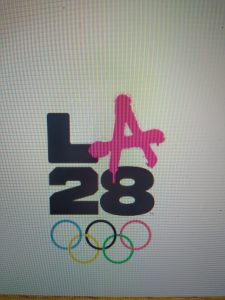
LA28 Logo
Surely there has never been a better time for cricket to re emerge at an Olympics, but why has it taken so long?
Baron Pierre De Coubertin, the founder of’ The Modern Olympics’, was a huge advocate of the English Public School system and pushed to introduce sport, including cricket, into the French system, importing the English model exemplified by the Headmaster of Rugby school, Dr Thomas Arnold.
- Pierre De Coubertin- the founder of The Modern Olympic Games
- Thomas Arnold- Headmaster at Rugby school (1828-1841)
As a young man, De Coubertin happened to read, ‘Tom Brown’s Schooldays’ by Thomas Hughes (1857) and according to Frank Deford writing in the Smithsonian Magazine in 2012,
had what can only be described as a spiritual experience
The climax of the novel about a young boy educated at Rugby school in the 1830’s is a cricket match- the young Baron was hooked

Rugby School- circa 1840
De Coubertin was particularly impressed by Arnold’s philosophy of incorporating sport into everyday school life and visited Rugby school several times in the 1880’s where he spectated at cricket and rugby matches and concluded that,
organised sport could be used to raise aspirations and improve the behaviour of young people
There is no doubt that Thomas Arnold was a very important influence in Pierre De Coubertin’s vision of the future and has in recent times been more widely recognised as such.
In 1890, De Coubertin travelled to Much Wenlock in Shropshire, where Dr William Penny –Brookes had founded ‘The Wenlock Olympian Games’ back in 1850, where cricket was one of the sports played, to ‘Provide annual competition in sports and the arts for people of every grade’ (which still continues today). Brookes had also helped to set up an ‘Olympic Championship’ notably at Crystal Palace in 1866, where England’s most famous Cricketer Dr W.G.Grace, won the 400 yards Hurdles event.
- The Wenlock Games- circa 1860
- William Penny-Brookes- founder of The Wenlock Olympian Games
Marking the centenary of the IOC in 1994, The President Juan Antonio Samaranch visited Much Wenlock to lay a wreath at Dr Brookes’ grave and made the following statement:
I came to pay tribute and homage to Dr Brookes who really was the founder of the Modern Olympic Games
Speaking in 2009, Sebastian Coe echoed those sentiments proclaiming that,
De Coubertin is often referred to as the founding father of The Olympic movement and I think we accept that that is probably the case. But much of his thinking was heavily impacted by both Thomas Arnold and William Penny- Brookes
Inspired by the ‘special festival’ he encountered De Coubertin envisioned as he said a,
Global festival of youth that would unite our world in friendship and peace through sport
In 1893, he led 2,000 delegates at the Sorbonne in Paris to resurrect the ‘Ancient Olympic Movement’ in a modern format and was elected President of the International Olympic Committee (IOC) in 1896, but despite the games of 1896, 1900, and 1904, that had all been organised alongside ‘World –Fairs’ in those cities, it would be London in 1908, where his vision of a true sports festival for the youth of the world started to take shape and helped solidify the Olympics as the world’s major multi sport competition that it is today, with cricket as part of the programme.
In 1894, De Coubertin told the Parnussus Literary society in Athens that
Cricket would take place on the plain
but it was scrapped due to a lack of participants and does not appear to have ‘officially’ taken place in 1896.
Interestingly, however, Olympic Historian Nitzan Zilburg based in Tel Aviv, is positive that a cricket match did take place in 1896 because the official publication of The IOC, ’Supplement due Messager d’Athens’, dated 11th April 1896 said that the programme had included Cricket, as had the Australian newspaper, ‘The Advertiser’, dated May 29th 1896, which had listed the sports played.

Nitzan Zilburg- Olympic Historian
Image ourtesy of Nitzan Zilburg Tel Aviv
Zilburg explained that,
The reason why there is no information about the cricket competition itself is a recommendation from the Greek Crown Prince Constantine, who chaired the organising committee. He said that sports that were contested ‘unofficially’, should never be mentioned
Zilburg believes that a cricket match did take place between Greece and Malta, but thinks it was omitted from the official programme because only two teams took part and quotes a Greek publication from 1930 written by Ioannes Chrysafis, who had taken part in the gymnastics competition in 1896, who says in his book that Greece had a cricket team from Corfu and that they could ‘play according to the rules’ He also mentioned that Malta could also send a team.
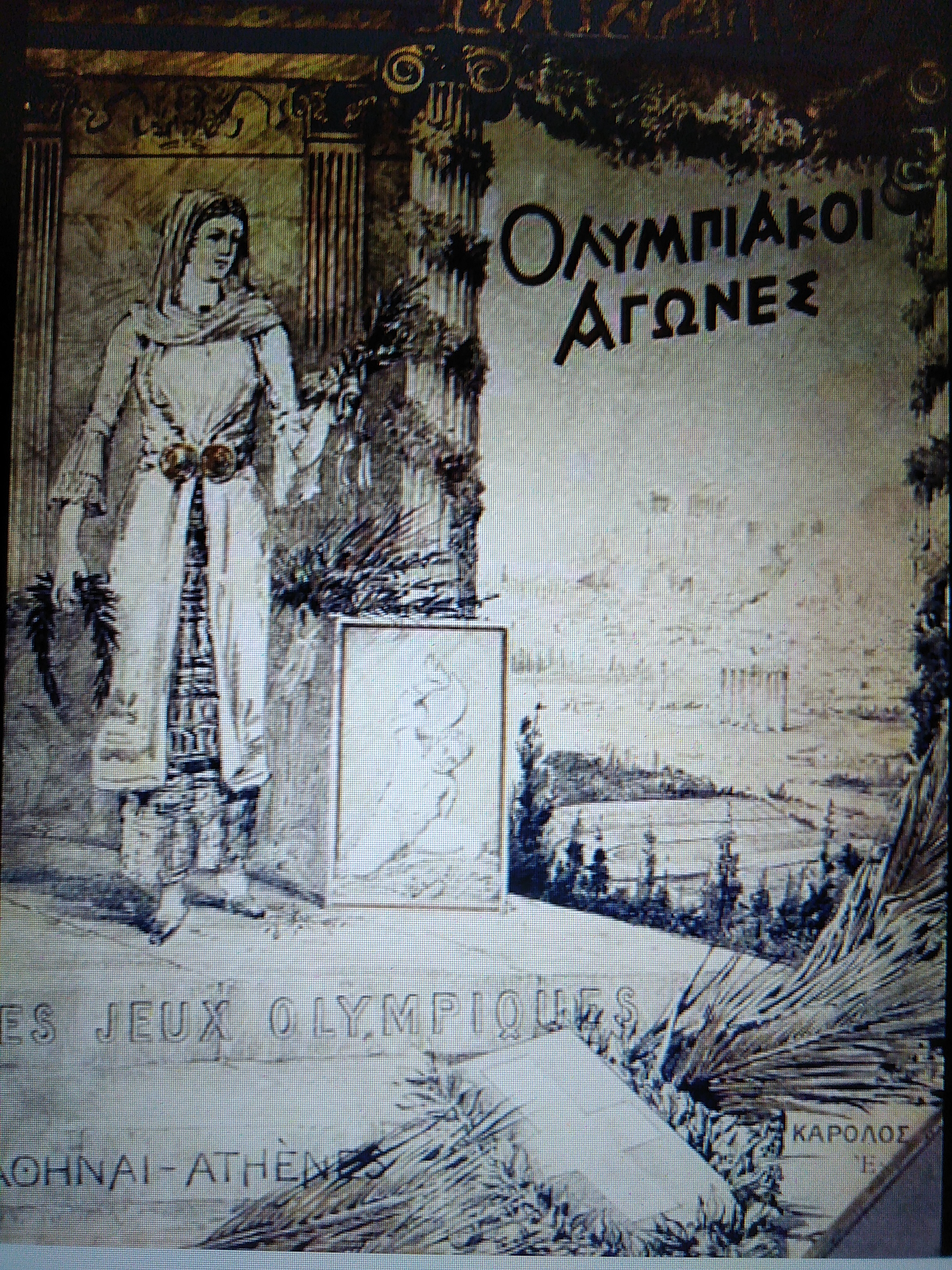
1896 Athens Olympics
Why teams from Great Britain and Australia who had begun playing ‘Test Matches’ against each other in 1877, did not take part we can only speculate, however Zilburg believes that
The British were simply not interested in going to Athens as they knew that there was no interest from other European countries. This was also the situation with Football
We may never know but what we do know is that a cricket match did take place in Paris at the 1900 Games, albeit by accident cementing the sport’s place in Olympic history
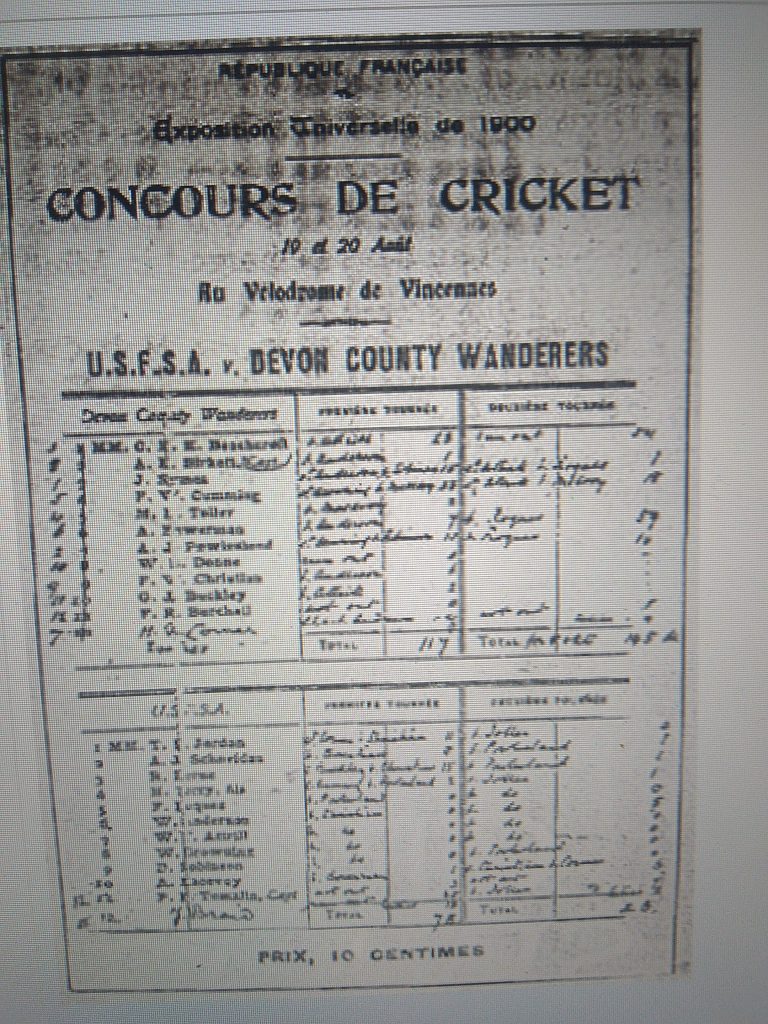
Match Scorecard for France v Great Britain 1900
Originally, it was planned that Great Britain, France, the Netherlands and Belgium would enter the competition, but unfortunately both the Netherlands and Belgium dropped out after their bid to ‘co host’ the games was turned down.
Consequently the match between the host nation France and Great Britain was to be cricket’s first and the only one to date, to be played at an Olympic Games.
Cricket was also scheduled to be part of the 1904 Games in St. Louis along with a competition for throwing a cricket ball, only for it to be scrapped again, due to a lack of interested participants.
Later in 1904 a deputation from the IOC visited Lord’s cricket ground and were welcomed by none other than the England test cricketers, W.G.Grace and C.B.Fry, where the guests watched Middlesex play the touring South Africans.
During their stay in London, they decided that the host city for the 1908 Games would be Rome and De Coubertin by all accounts, put aside 2,000 francs for the ‘cricket tournament’ to be played at the Villa Borghesi, showing again, his intent to include the sport.
However the Italian organisers were found to be in financial difficulty and when Mount Vesuvius erupted in 1906, they decided to pull out.
London was confirmed as replacement hosts, which caused many involved in the game to believe that cricket would surely now be given its place as part the Olympic fraternity.
It was not to be as the official report stipulated that,
the main principle laid down for 1908 was that no competition should be sanctioned which was not practised by several different nations
Test cricket was still in its infancy, at this time with only a small number of countries that were part of the British Empire actually playing the sport at international level, so perhaps it was not surprising given the Olympic principle highlighted above, that cricket along with the Basque racket sport of pelota and American baseball was rejected.
However, interestingly there were several examples of what can only be described as ‘double standards’, as the boxing competition only included fighters from Britain and the rugby union event went ahead with only two competitors.
Writing in 1909, De Coubertin signed the sport’s death knell, however by stating that, despite his desire to include it,
Cricket has practically no appeal for those not British
Here lies the problem because despite his positive moves to include cricket in the earlier competitions, ultimately De Coubertin did not see it, in the format played in 1900, as an Olympic sport that would be enjoyed by many because it took too long to come to a conclusion and its unfortunate that the shortened version of the game (T20) introduced in 2003 in England, as an inter county competition to be followed by the first international match between Australia and New Zealand in 2005, was not being played back then, as it would surely have appealed to many countries outside the Empire, as it does today.
In Paris in 1900, events took place between May and October across 16 venues and were often referred to as ‘part of the Great Exposition or The World’s Fair’.
The British team was not a nationally selected team, but a touring ‘club team ‘ from the west- country.
This was not unusual as club teams often represented Great Britain in many events in the late 19th and early 20th centuries.
The Rugby competition, for example was won by ‘The Moseley Wanderers’ from Birmingham, their only match played during a one -day visit to France and the Water Polo competition was won by ‘The Osborne Swimming Cub,’ from Manchester.
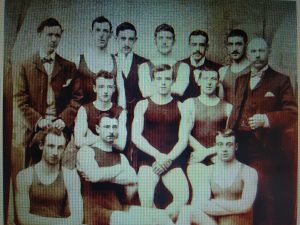
Osborne Swimming Club- Gold medalists 1900
Quite remarkably, in the 1880’s many Cricket Clubs organised annual club tours to the continent and William Donne, secretary of the Castle Carey club in Somerset made sure that his club was no exception!
In 1898 he had organised a tour to Holland taking a team of Castle Carey players and former pupils of Blundells School from Tiverton, under the name, ‘The Devon and Somerset Wanderers’ and following the success of the tour, in 1900 he set about arranging a three -match tour to France.
- Castle Carey Cricket Club- Somerset
- Blundells School- Tiverton, Devon
Once again the team would be an amalgamation, but this time for some reason they would be called, ‘The Devon County Wanderers’, with five players from Somerset and nine from Devon and when they arrived in Paris on August 17th, they found a city thronging with people attending The World’s Fair and in most cases it seems, oblivious to the fact the ‘The Olympic Games’ was also taking place alongside it!
‘The first of their three matches was due to be played on the Sunday and Monday and would be followed by two single-innings matches all at the same venue, ‘The Velodrome de Vicennes’, where the banking provided for cycle racing, would now act as boundaries for the cricket match’, reported Roger Mann in the Torbay Weekly News in 2021.
The opposition, many of whom were British ex pats living in Paris, played under the name, ‘All Paris’ and were also a team that had been brought together for the purpose of the match, from The Albion Cricket Club and The Standard Athletic Football Club of Paris.
Posters around the city were billing the match as ‘France v England’, in the hope of attracting a large crowd and the story goes that Pierre de Coubertin became aware of the match and spent time trying to work out how to include it as part of his Olympic programme, in order to widen the number of sports being played.
He had reputedly suggested that Belgium play a match against The Netherlands, with the winners to play in Paris in a ‘Gold Medal match’ against the winners of the France v England match, however that match never took place, so he was left with just one match in his Olympic cricket competition.
Not that the players knew they were taking part in the Olympics, this was just the first of three tour matches that they were to play.
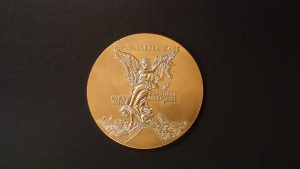
The Gold Medal -Paris 1900
Courtesy of Blundells School Devon
In an extract from his diary, published in Blundells School magazine, ‘The Blundellian’ in November 1900, tourist and ‘old boy’ John Symes recounted the story,
The Exhibition authorities kindly allowed us to play on the Veledrome de Vicennes, a splendid ground surrounded by a cycle track and capable of holding 20,000 people, but alas, we played to empty terraces with the exception of some two dozen French Gendarmes
As Roger Mann explained,
It became clear quite early on that the English team would be too strong for their hosts and in the end in front of a small number of spectators, won by 158 runs
It was agreed that the game should be 12 a side and that they should each have two innings; ‘England’ batted first scoring 117 in their first innings and bowling out the French for 78.
In their second innings, the men from Devon and Somerset scored 145-5, with 50’s from Charles Beachcroft , who often opened the batting for Exeter and Alfred Bowerman, who later made two appearances for Somerset, setting a target of 185 for the French team to chase.
In the event, this was too much for them and they limped through their second innings, being bowled out for 26; Montague Toller who would later make six appearances for Somerset and also play for Devon and feature for a W.G.Grace X1, took 7 for 9.
Initially they were awarded silver medals, with the French given the bronze, with both teams receiving miniature replicas of the Eiffel Tower that had been built eleven years earlier at ‘The Exposition Universalle’ to mark the 100th anniversary of the French Revolution.

The Exposition Universalle- Paris 1900
In the official report of the 1900 Games, the cricket competition was summed up by declaring that, ‘The English team was composed of twelve men of Devon County, long accustomed to playing together and were superior in team work and training!’
In his excellent booklet, ‘A Great Day For England’(2007), Keith Grayson believes, however that the players did have some sense of the importance of the match as tourist John Symes recalled in his diary:
The two English coachmen who took us to the ground became so inflated with national pride and other things, after this victory, that one had to ride back inside and the other came utterly to grief, splintering the rear hind wheel of his wagonette to matchwood in a tramway line, much to the disturbance of a seventeen stone cricketer who happened to be sitting over it
Can anything have been more perfect than this? concluded John Symes, whose diary, poster and scorecard have been most useful to historians over the years.
The match however, was never recorded by Wisden and seemed lost until someone made the point that although only one match was played it did constitute an international competition.
Eventually in 1912, the match was confirmed as being an ‘Olympic Final’ and Gold and Silver medals were awarded( the medals, however have never surfaced).
Interestingly, Club Secretary and major driving force behind the tour William Donne later entered the world of ‘sports politics’ becoming President of The Rugby Football Union in 1924/25 having served in The Somerset Light Infantry during World War one!
So, one hundred and twenty eight years later, how likely is it that cricket will return in LA28?
The official line from the Olympic Studies Centre in Switzerland is that,
The IOC Executive Board will validate the full sports programme at one of its meetings in 2023, but we are unable to share the precise date
The ECB spokesperson was equally as vague stating
We couldn’t comment on whether we believe cricket will be included in the Olympics or not- we don’t know
Paraag Maratha, the outgoing chairman of USA Cricket believes that with
So many passionate cricket fans and players in the USA and a huge global audience and following for the sport around the world, cricket’s inclusion will add great value to the Los Angeles Olympic Games.
Writing in 2022 cricket journalist Ravi Raj reinforced this argument:
Cricket appears to have advantages over its opponents on all ‘Five Evaluation Criteria’ listed by the IOC
In particular, in relation to the Olympic Charter a sport must have a global fan base and should be played by men across all four continents and women in at least forty countries and this is where cricket has a significant advantage over the other eight other sports vying for inclusion, which includes baseball and lacrosse, as more than 100 associate nations now play cricket at international level and it is estimated that the game is now played by over 30 million registered players world-wide!
Secondly, the IOC wants the top players in the world to take part and even though franchise cricket is rising, international cricket still holds it allure, so it is likely that the superstars of the game would want to be involved!
The T20 Captains at the 2022 World Cup Men and Women
Borla Majumber, writing in April 2023 believes that,
A lot more will be known on June 7th and by August, we will have a definitive answer on this issue. In October, India will be hosting the ICC World Cup and an announcement on cricket’s inclusion in LA28 in the middle of this competition, would be huge
The growing importance of the Indian market is crucial for the ICC and India’s interest in mounting a bid for the 2036 Games can only give the sport more credence within the movement.
Finding a place inside the Olympic tent’ said Majumber,’ is the next logical step and when it finally does happen, fans across the world are likely to ask: why has it taken so long
Speaking in April 2023 on ‘Inside the Games’, ICC Chairman, Greg Barclay summed up the current position:
Cricket at LA28 will be a defining moment for the Olympics and sport in the USA, helping to achieve the legacy that was such a compelling feature of LA’s candidature. Win-win-win’s do not come around often, especially in sport’s hyper-competitive environment
He concluded that,
now, we believe is the time to seize the moment and turn our ambitions into realities
If it happens, Great Britain would be effectively defending the Olympic title they have held since 1900
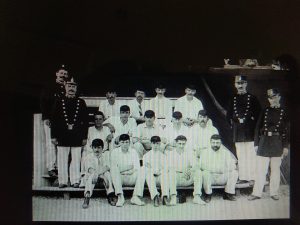
Olympic Champions 1900- The Devon County Wanderers
Article © of Bill Williams

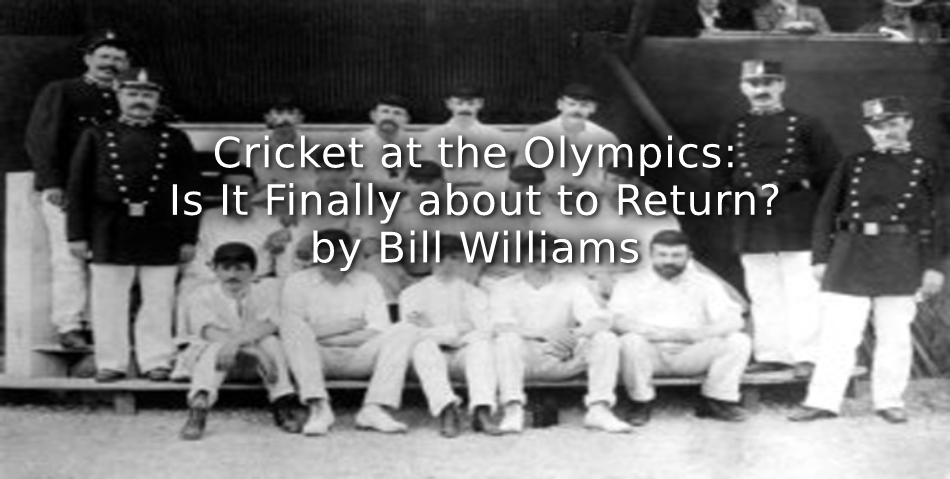
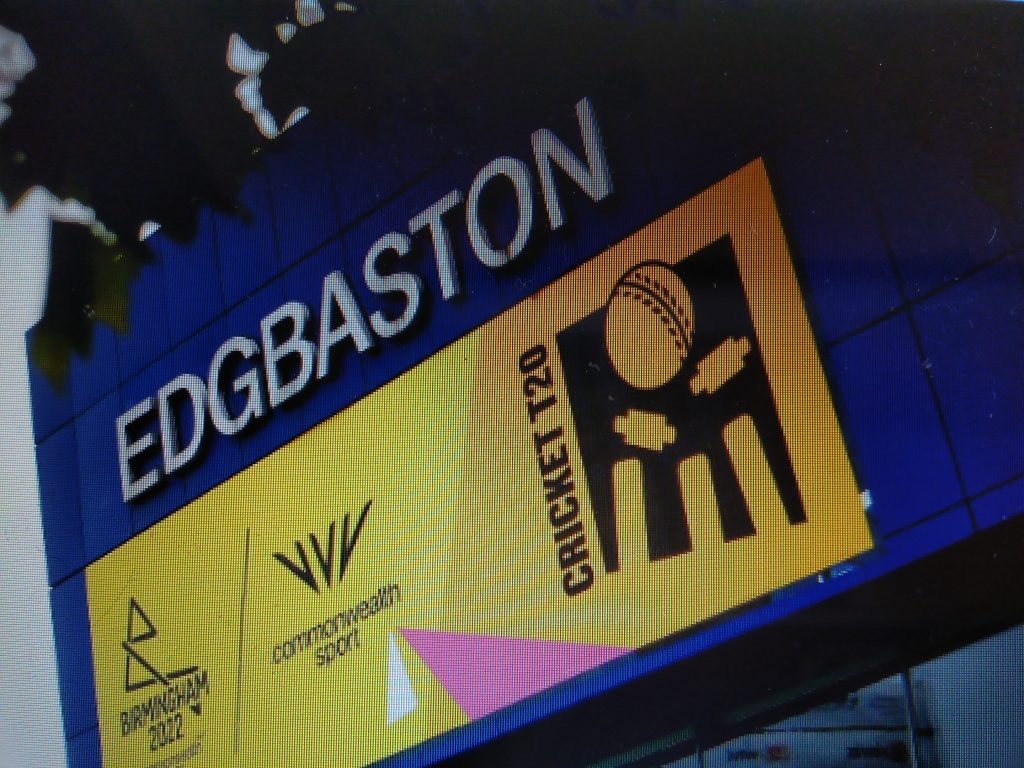
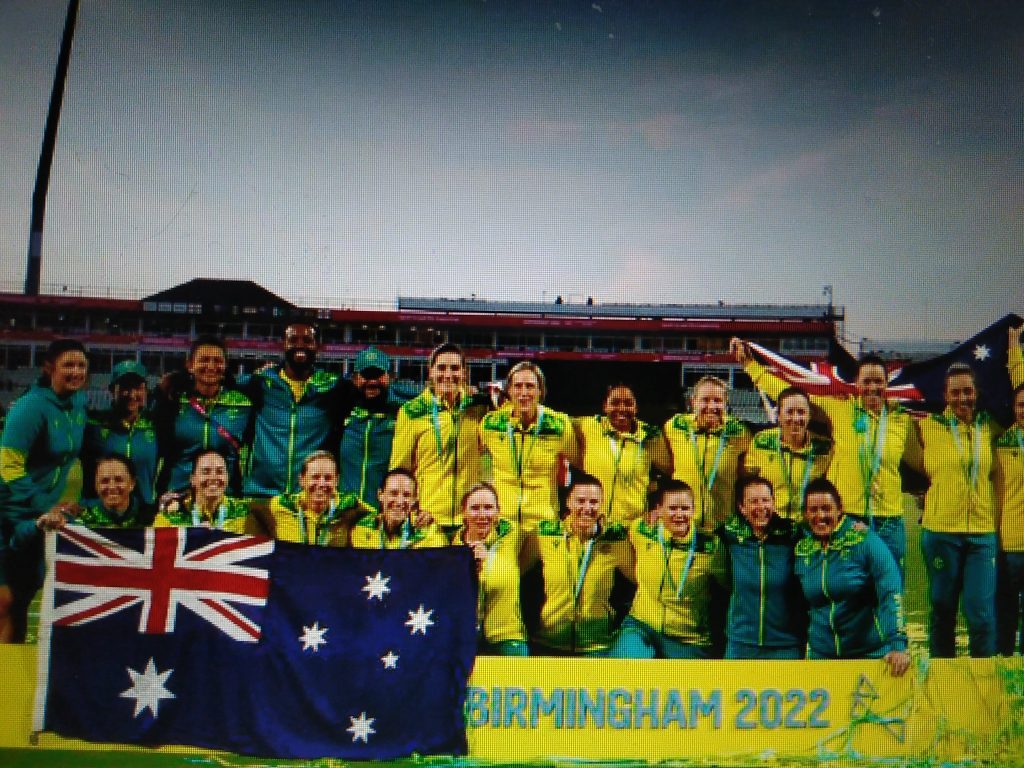
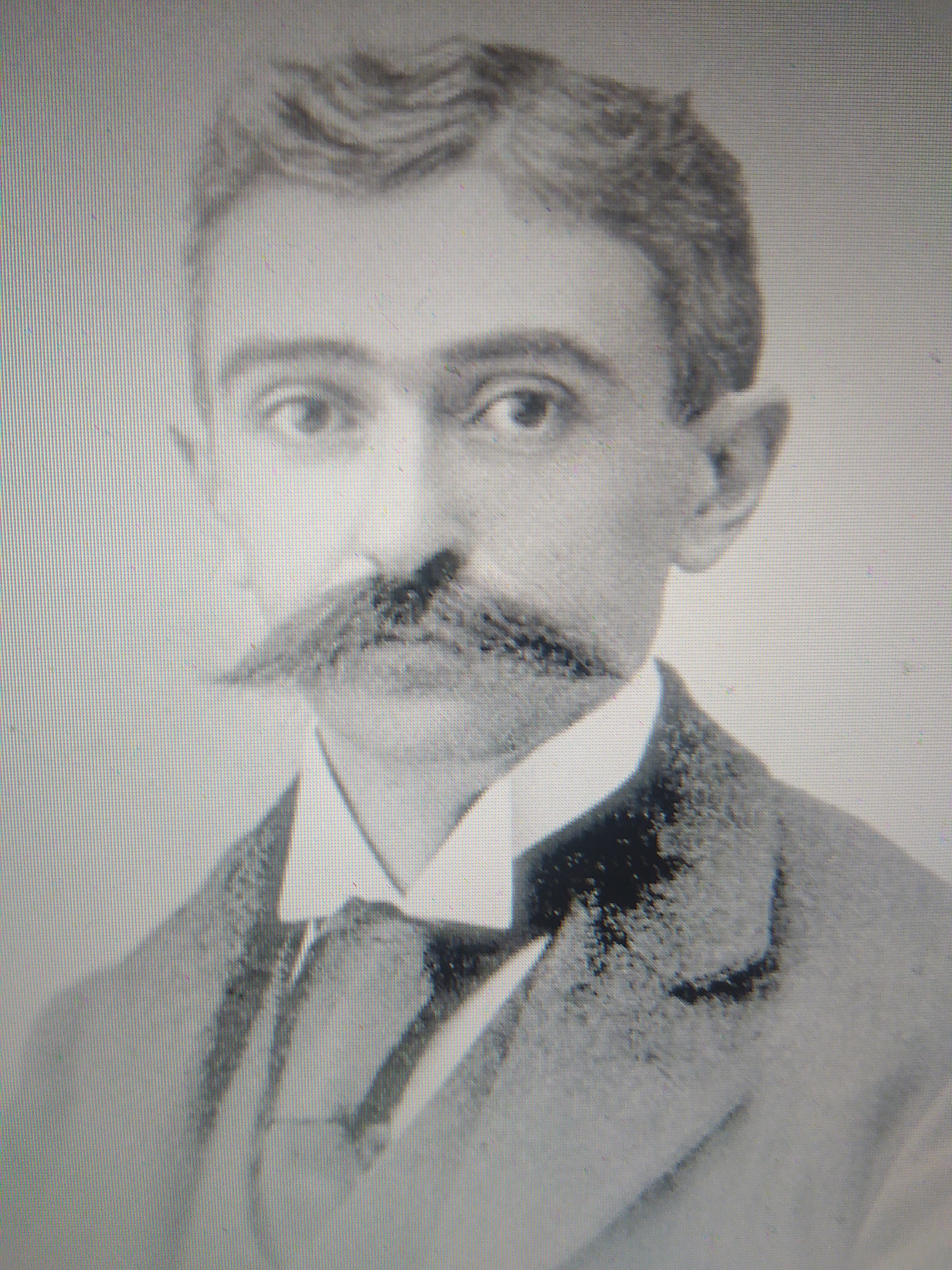
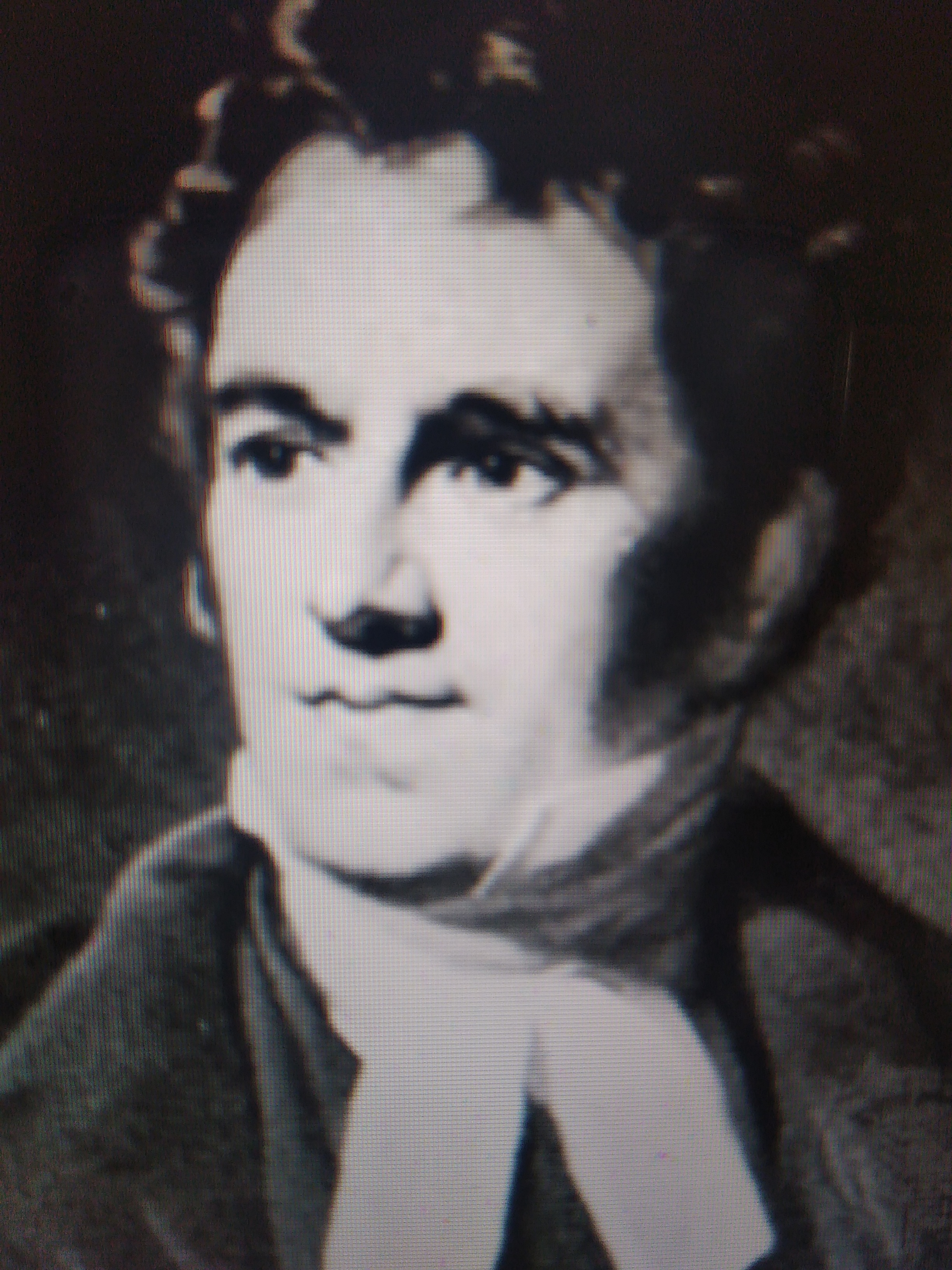
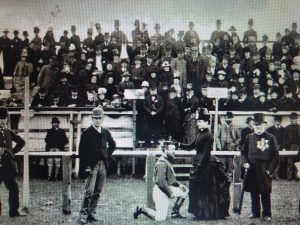
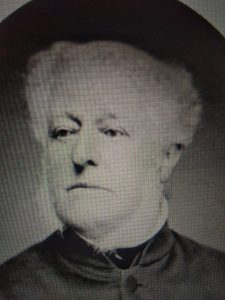
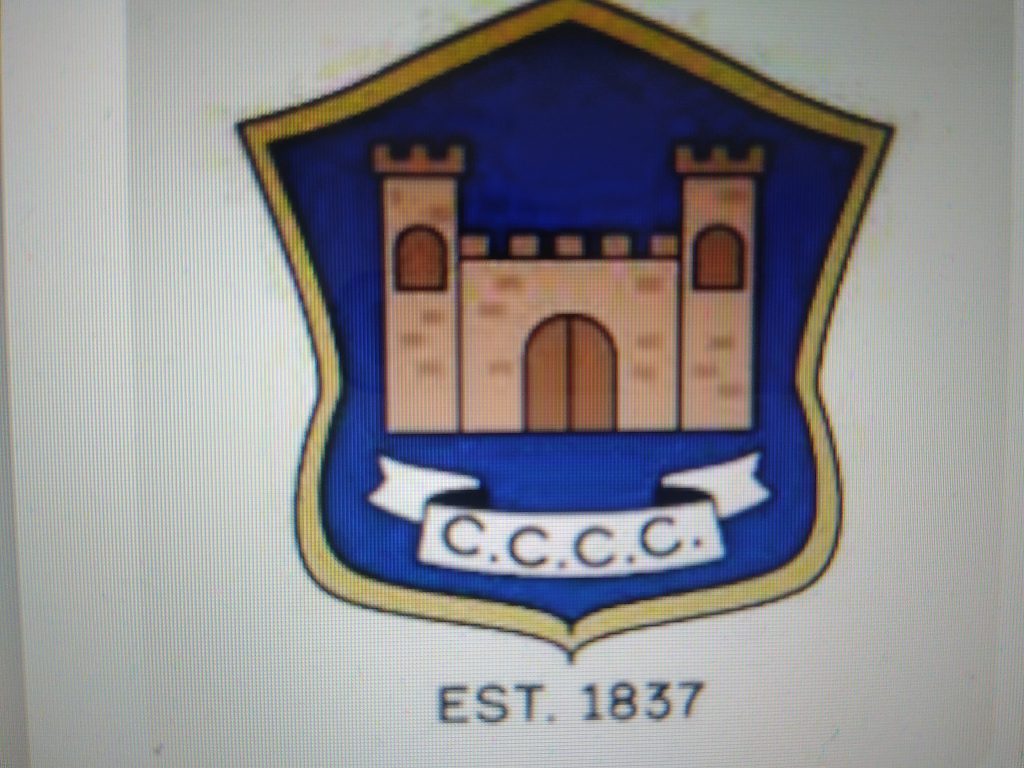

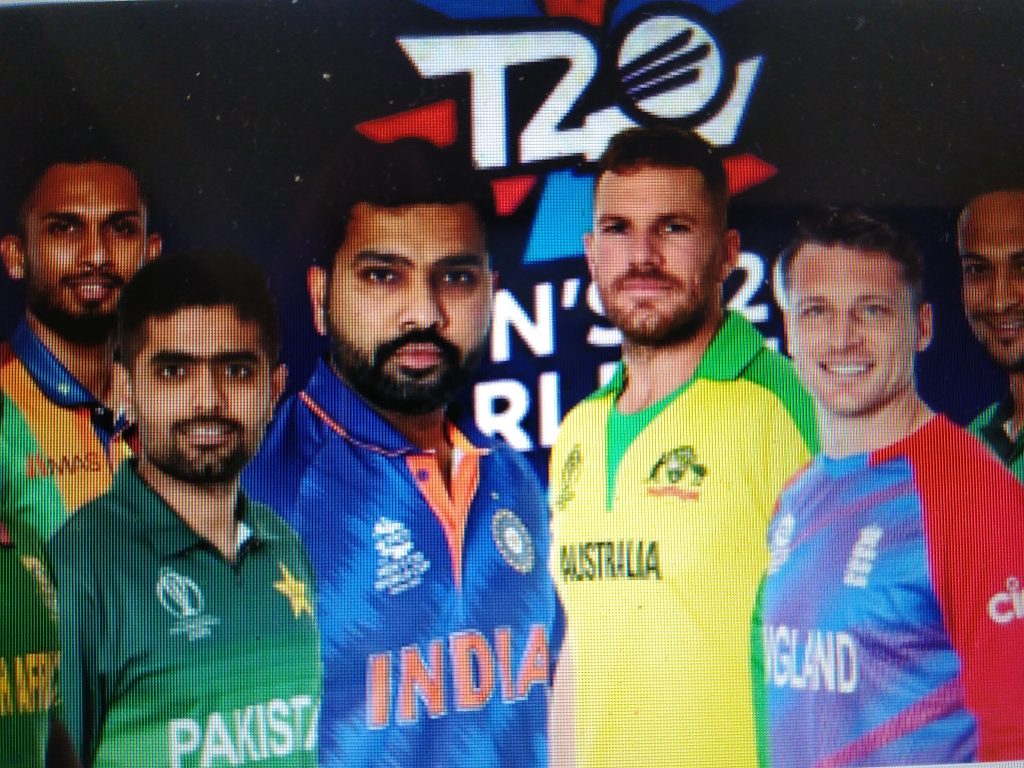
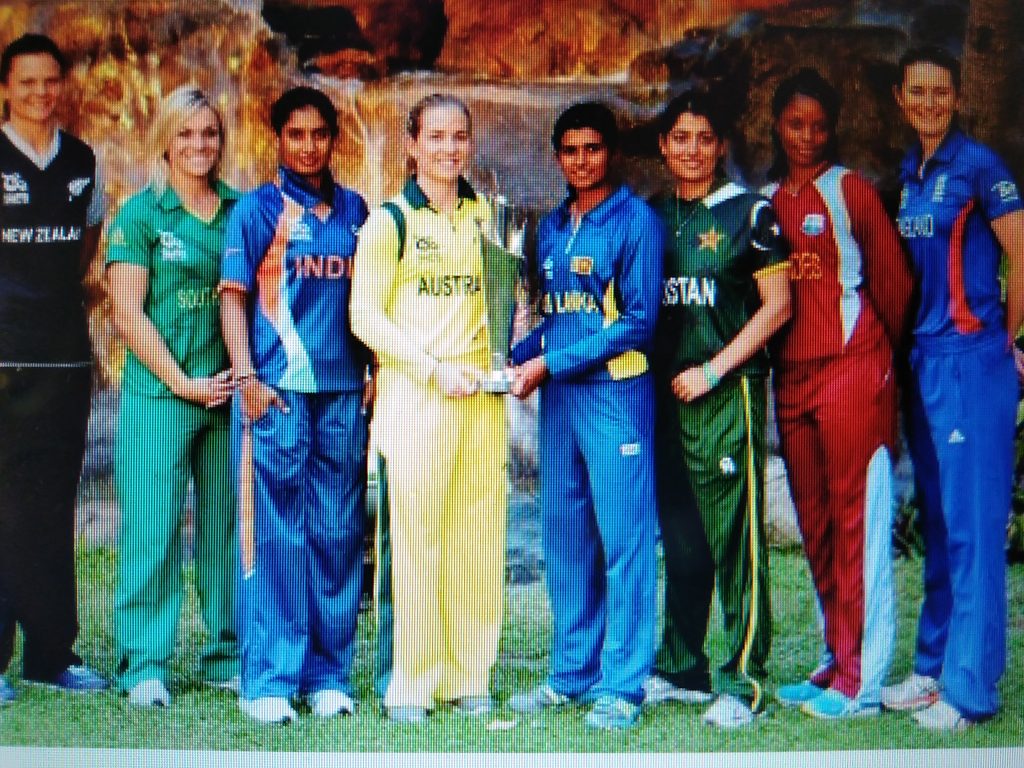
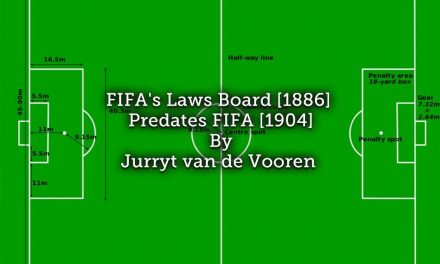
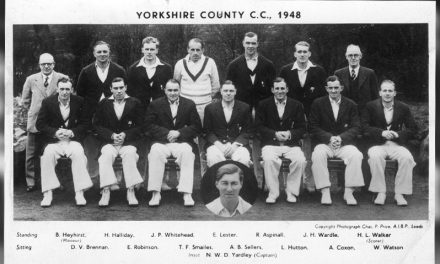

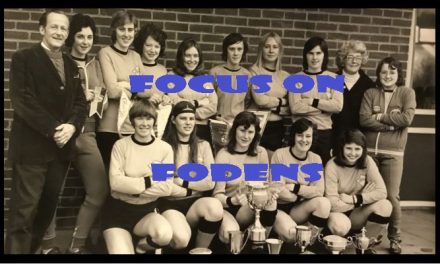
Hi Bill
A very interesting article. Let’s hope cricket gets its place back at the Olympics.
The fact about club teams representing their countries is a bit more complicated as the Osborne team that represented England in 1900 only contained two Osborne players, Thomas Coe, who captained the team and Peter Kemp. Others were W. Henry, Life Saving Society, R. A. Crawshaw, Manchester Mayfield, F. Stapleton, Nottingham, J. A. Jarvis, Leicester and an Australian, Victor Lindbergh, who was actually a Fijian born New Zealander who moved to Australia and then England.
Mark Evans